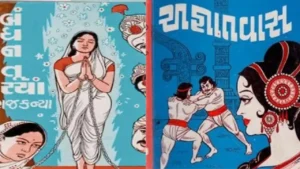Raksha Bandhan, often affectionately called Rakhi, is a vibrant festival that celebrates the deep bond between brothers and sisters. Rooted in Indian culture, this festival is more than just a ritual—it’s a heartfelt expression of love and protection. This article explores the significance, customs, and celebratory aspects of Raksha Bandhan, shedding light on why it’s cherished by millions.
The Significance of Raksha Bandhan
Raksha Bandhan, meaning “the bond of protection,” highlights the special relationship between siblings. On this day, sisters tie a sacred thread, known as a Rakhi, around their brothers’ wrists. This act signifies the sister’s prayers for her brother’s well-being, while the brother promises to protect his sister and stand by her side.
The essence of Raksha Bandhan is about the love and trust shared between siblings. It’s a celebration of family bonds that transcends geographical and cultural boundaries, uniting people in a shared sense of affection and duty.
Historical and Mythological Background
Raksha Bandhan’s roots are deeply embedded in Hindu mythology and history. Various legends highlight its significance:
- The Legend of Rani Karnavati and Humayun: One well-known story is that of Rani Karnavati, the queen of Chittor. When her kingdom faced danger, she sent a Rakhi to Emperor Humayun, asking for his protection. Moved by her gesture, Humayun came to her aid, reinforcing the festival’s theme of protection and support.
- The Story of Lord Krishna and Draupadi: Another popular tale involves Lord Krishna and Draupadi from the Mahabharata. During a distressing moment in Draupadi’s life, Krishna came to her rescue by extending her saree to preserve her honor. In gratitude, Draupadi tied a Rakhi around Krishna’s wrist, symbolizing their protective bond.
- The Tale of Yama and Yamuna: In another legend, Yamuna, the goddess of the river, invited her brother Yama, the god of death, to visit her. In gratitude for his visit, she tied a Rakhi on his wrist, asking him to visit her every year. This established the tradition of tying Rakhis as a symbol of love and protection.
These stories enrich the festival’s significance, adding layers of meaning to Raksha Bandhan.
When Is Raksha Bandhan Celebrated?
Raksha Bandhan is observed on the full moon day (Purnima) of the Hindu lunar month of Shravan, typically in August. The specific date varies each year according to the lunar calendar. In 2024, Raksha Bandhan will be celebrated on August 19.
The timing is significant in the Hindu calendar, as the month of Shravan is considered auspicious for various rituals and celebrations. The full moon day is particularly favorable for honoring relationships and familial bonds.
Customs and Rituals
Raksha Bandhan involves several traditional rituals that, while varying by region, generally follow a similar pattern:
- Preparation of the Rakhi Thali: Sisters prepare a ceremonial plate, or thali, which includes the Rakhi, sweets, and sometimes small gifts. The Rakhi is usually made of colorful threads and adorned with intricate designs. The thali may also include a diya (oil lamp), rice, and water.
- The Rakhi Ceremony: The sister applies a tilak (a mark) on her brother’s forehead using red powder. She then ties the Rakhi around his wrist while performing the aarti (a ritual involving the waving of a lamp). This act symbolizes her prayers for his well-being and protection.
- Brother’s Promise and Gifts: In return, the brother promises to protect his sister and offer support. He often gives her gifts, which may include money, clothes, or other tokens of appreciation.
- Festive Celebrations: The day is marked by festive meals, sweets, and a joyful atmosphere. Families come together to celebrate, reinforcing their bonds and creating lasting memories.
Wishes and Messages for Raksha Bandhan
Sending heartfelt wishes and messages on Raksha Bandhan adds a personal touch to the celebration. Here are some thoughtful messages you can share:
- “Happy Raksha Bandhan! May our bond grow stronger with each passing year. Wishing you all the happiness and joy in the world.”
- “To my wonderful brother/sister, you mean the world to me. Happy Raksha Bandhan! May we continue to share this beautiful bond forever.”
- “On this special day, I wish you success and joy in everything you do. Happy Raksha Bandhan to the best brother/sister anyone could ask for.”
- “Dear [Brother/Sister], as I tie this Rakhi, I am reminded of the countless memories we’ve shared. Your love and support mean everything to me. Happy Raksha Bandhan!”
- “On this Raksha Bandhan, I want to thank you for always being there for me. Your presence in my life is a true blessing. Wishing you a joyous and prosperous festival.”
Tailoring your messages to reflect your personal feelings makes the celebration even more meaningful for both you and your sibling.
Modern Celebrations and Global Observance
While Raksha Bandhan is deeply rooted in tradition, it has adapted to modern times. Today, the festival is celebrated not only in India but also in various parts of the world where Indian communities reside. Globalization has facilitated the exchange of cultural practices, allowing people from different backgrounds to participate in and appreciate this beautiful tradition.
Modern celebrations may include virtual Rakhi ceremonies, where siblings separated by distance can still observe the rituals through video calls. The essence of Raksha Bandhan has also expanded beyond biological siblings to include close friends and extended family members, reflecting contemporary relationship dynamics.
Conclusion
Raksha Bandhan is more than just a festival; it’s a celebration of the enduring bond between siblings. Through its rich traditions, myths, and rituals, Raksha Bandhan reinforces the values of love, protection, and mutual respect. As you celebrate this special day, whether in person or virtually, may the spirit of Raksha Bandhan fill your life with joy, harmony, and cherished moments. Happy Raksha Bandhan!
FAQs About Raksha Bandhan
1. When is Raksha Bandhan celebrated?
Raksha Bandhan is celebrated on the full moon day (Purnima) of the Hindu lunar month of Shravan. This typically falls in August. In 2024, Raksha Bandhan will be observed on August 19.
2. What are the traditional rituals of Raksha Bandhan?
The main rituals include preparing a ceremonial thali with a Rakhi, sweets, and sometimes small gifts. During the ceremony, sisters apply a tilak (mark) on their brothers’ foreheads, tie the Rakhi around their wrists, and perform aarti (a ritual of light). Brothers then promise to protect their sisters and usually give gifts in return.
3. What are some common Rakhi gifts?
Common Rakhi gifts from brothers to sisters include money, clothes, jewelry, cosmetics, and other personal items. The choice of gift often depends on the sister’s preferences and interests.
4. Are there any specific foods associated with Raksha Bandhan?
Yes, Raksha Bandhan is often celebrated with a variety of traditional sweets. Popular choices include sweets like laddoos, barfis, and peda. The festive meal may vary based on regional preferences and family traditions.
5. What is the significance of the Rakhi thread?
The Rakhi thread is a symbol of the sister’s love and prayers for her brother’s safety and well-being. It represents the emotional and protective bond between them. For the brother, it signifies a promise to safeguard his sister and fulfill his duties towards her.
6. Can Raksha Bandhan be celebrated with friends or cousins?
While Raksha Bandhan traditionally focuses on the bond between brothers and sisters, it has evolved to include friends and cousins as well. Many people now celebrate Raksha Bandhan with close friends and extended family members, recognizing the value of these relationships.





